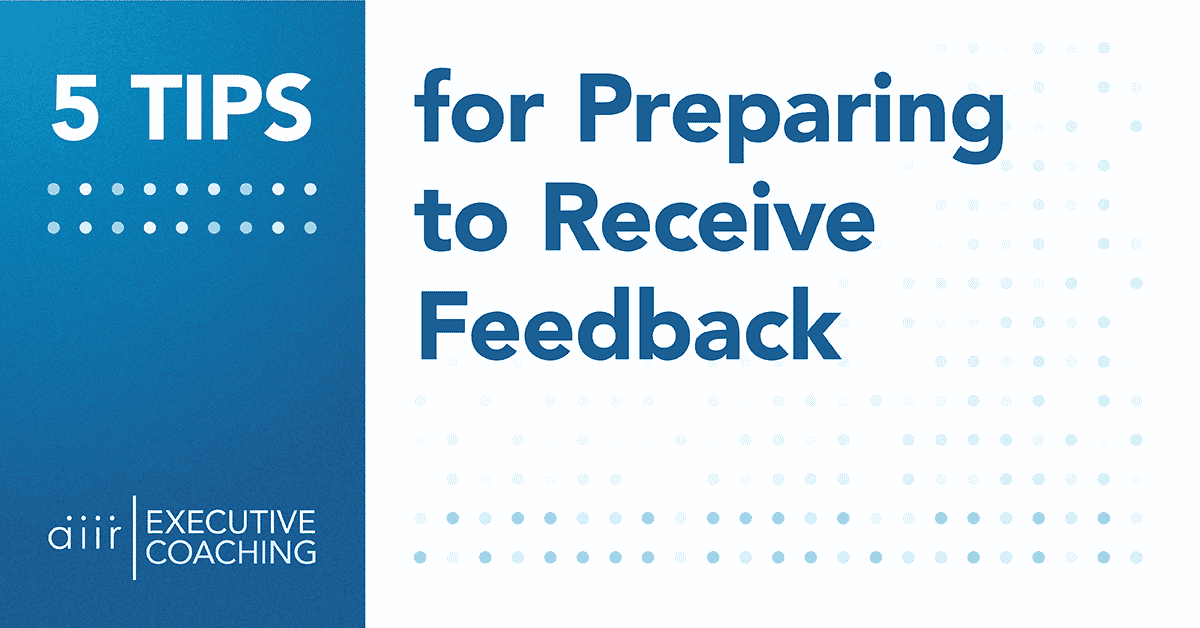Feedback is one of the most important parts of your coaching journey.
For most people, there exist gaps between how they see themselves and how they are seen by others. Without attention, these gaps become dangerous blind spots that can reduce your effectiveness and, over time, damage your career.
Feedback is about closing the gap between how you see yourself and how you’re seen by others, providing you with powerful self-awareness, a better understanding of your strengths, your weaknesses, and, importantly, how those strengths and weaknesses come across to others.
Here’s the catch: studies have shown that human beings are hard-wired to resist information that contradicts how they see themselves. So, hearing assessment data and 360º feedback isn’t easy. To help you make the most out of your feedback session, here are 5 tips to keep in mind:
1. Don’t take action right away
Most leaders are action-oriented. After receiving your feedback, your natural tendency may be to tackle your opportunities head-on. We understand. But meaningful change is a process. The best thing you can do is to sit with your feedback until your next coaching session.
2. Take some time to process
Don’t reject or accept anything too quickly. Take some time to sit with your feedback and see what resonates with you, and what doesn’t. Then, at your next session, go over it with your coach.
3. Remember that feedback a snapshot
Assessment data and 360º feedback can provide unmatched insights into who you are and how others perceive you at a given moment. But, it is important to remember that nothing is written in stone. People and performance change. If feedback reveals something that you want to change, you can.
4. Focus on the big picture
The reason we use multiple assessments is that the information we get from each helps us paint a more detailed picture of your personality and performance. So, instead of focusing on one comment or one person, focus on the bigger themes that emerge across assessments.
5. Recognize your strengths
Human beings suffer from a phenomenon known as negativity bias. Even if your feedback is overwhelmingly positive, your natural tendency will be to focus on the negative. But taking time to recognize your strengths is important for two reasons: First, understanding your strengths will empower you to use them more effectively.
Second, in moments of stress and uncertainty, most leaders’ tendency is to overuse their strengths to the point that they become weaknesses. In fact, some of your own less flattering feedback is likely the result of this phenomenon.
Join an always-growing community of leaders from around for Breathing AIIR, a virtual mindfulness and wellness practice designed to bring calm and clarity to your workweek.
Are You Ready To Shape A Better Future Together?
Partner with AIIR to empower your leaders and ascend into the future.
